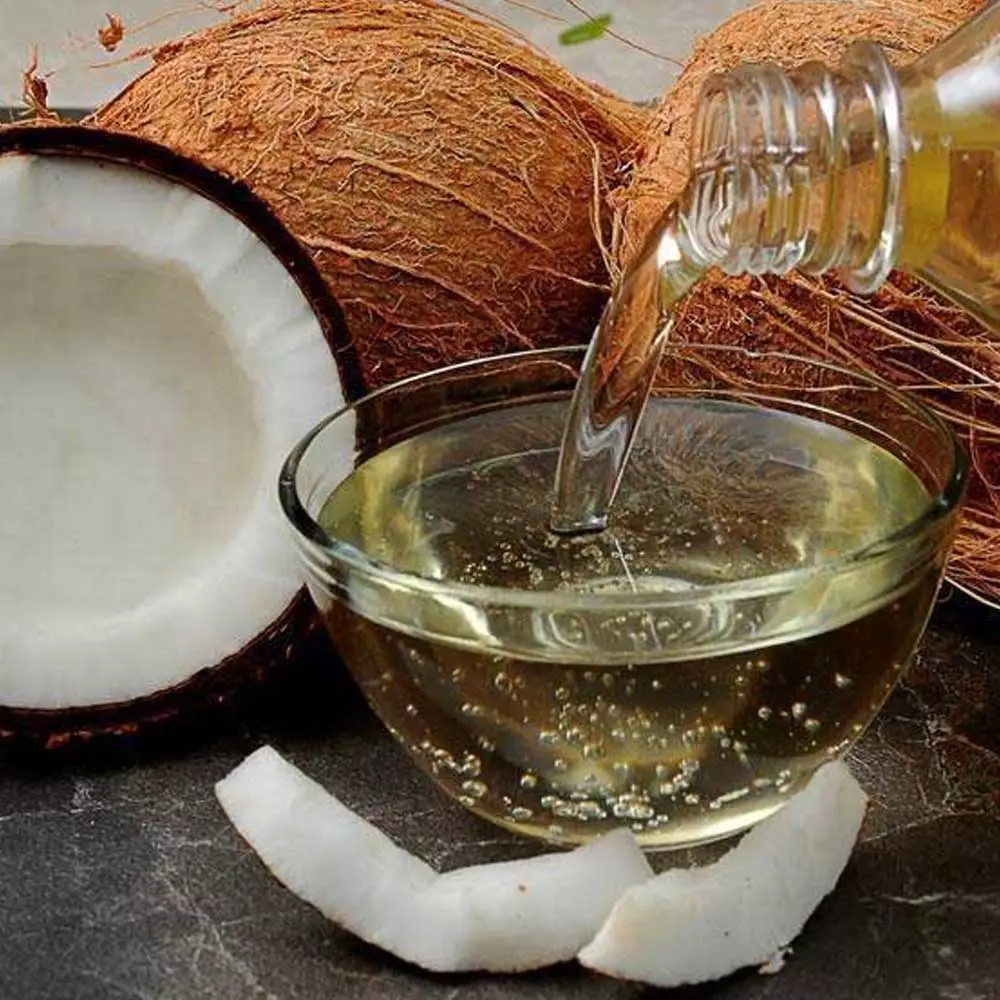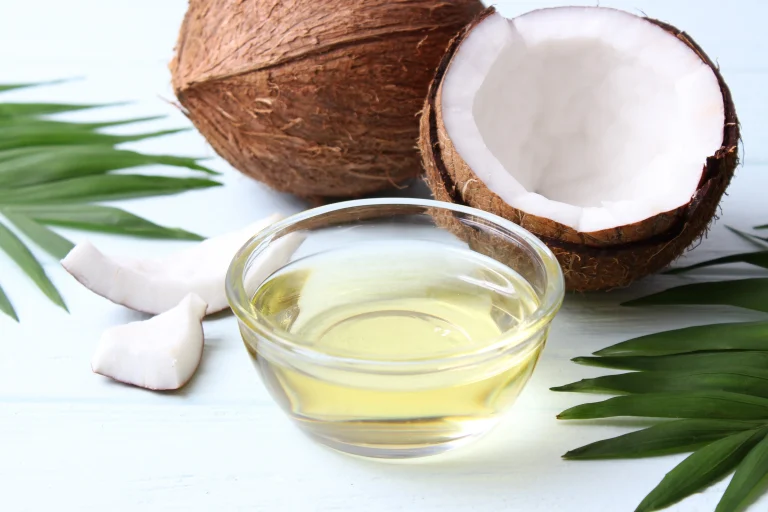Coconut oil has gained immense popularity in recent years for its numerous health benefits and versatile uses. However, there are different methods of extracting coconut oil, which can affect its quality and nutritional profile. The two most common methods of coconut oil extraction are cold pressing and expeller pressing. In this article, we will discuss the differences between cold pressed vs expeller pressed coconut oil, their pros and cons, and which one is better.
What is Cold Pressed Coconut Oil?
Cold pressed coconut oil is extracted from fresh coconut meat without any external heat or chemicals. The process involves pressing the coconut flesh at low temperatures (below 50°C) to extract the oil, which retains most of its natural nutrients and flavors.

This method of extraction is considered to be the most natural and organic way of producing coconut oil.
What is Expeller Pressed Coconut Oil?
Expeller pressed coconut oil, also known as refined coconut oil, is extracted using high heat and pressure. The process involves crushing the coconut meat and then subjecting it to high pressure to extract the oil. The oil is then subjected to further processing to remove impurities and improve its shelf life.
This method of extraction produces a more refined and uniform oil but can also strip the oil of some of its natural nutrients and flavors.
Comparison between Cold Pressed and Expeller Pressed Coconut Oil:
Here is a comparison table between cold pressed and expeller pressed coconut oil:
| Cold Pressed Coconut Oil | Expeller Pressed Coconut Oil | |
|---|---|---|
| Extraction Process | Mechanical pressure at low temperatures (below 50°C) | High heat and pressure |
| Nutrient Content | Retains most natural nutrients and flavors | Some nutrients and flavors may be lost |
| Color and Aroma | Natural coconut scent and flavor | Neutral scent and flavor |
| Shelf Life | Shorter shelf life due to high nutrient content | Longer shelf life due to refinement |
| Cost | More expensive due to natural and organic production process | Less expensive due to industrial production process |
| Smoke Point | Low smoke point, suitable for low-heat cooking | High smoke point, suitable for high-heat cooking |
| Certification | Usually organic and non-GMO certified | May not be organic or non-GMO certified |
Which One is Better: Cold Pressed or Expeller Pressed Coconut Oil?
Both cold pressed and expeller pressed coconut oils have their advantages and disadvantages. Cold pressed coconut oil is considered to be the healthier option as it retains most of its natural nutrients and flavors, making it more nutritious and flavorful.

It is also suitable for low-heat cooking and has a natural coconut scent and flavor. However, it has a shorter shelf life and is more expensive due to its natural and organic production process.
On the other hand, expeller pressed coconut oil is more refined and has a longer shelf life. It also has a neutral scent and flavor, making it suitable for a variety of culinary uses. It is also less expensive due to its industrial production process. However, it may have lost some of its natural nutrients and flavors due to the high heat and pressure used in its extraction process.
FAQs: Cold Pressed vs. Expeller Coconut Oil
1. What is the difference between cold-pressed and expeller coconut oil? The main difference lies in the extraction process:
- Cold-pressed coconut oil: It is extracted from fresh coconut meat without using heat. The oil is obtained by pressing the coconut flesh, and this process preserves more of the natural nutrients and flavors.
- Expeller coconut oil: It is extracted by mechanically pressing the coconut meat with the use of heat. This method may involve higher temperatures, which can slightly alter the oil’s taste and nutritional content.
2. Which one is considered more nutritious, cold-pressed, or expeller coconut oil? Cold-pressed coconut oil is often considered more nutritious because it retains more of the natural nutrients, such as antioxidants and vitamin E, due to the absence of high heat during the extraction process. However, both types of coconut oil can still offer health benefits.
3. Is there a significant difference in taste between the two types of coconut oil? Yes, there can be a difference in taste. Cold-pressed coconut oil is usually considered to have a more pronounced coconut flavor and aroma, while expeller coconut oil might have a milder taste due to the higher temperatures used during extraction.
4. Can both types of coconut oil be used for cooking and baking? Yes, both cold-pressed and expeller coconut oil can be used for cooking and baking. They have high smoke points, making them suitable for various culinary applications like sautéing, frying, and baking.
5. Which type of coconut oil is better for skin and hair care? Both cold-pressed and expeller coconut oil can be used for skincare and hair care. Cold-pressed coconut oil may be preferred for these purposes due to its higher nutrient content and retained natural properties.
6. Does the extraction process affect the health benefits of coconut oil? The extraction process can impact the nutrient content and taste of coconut oil. Cold-pressed coconut oil may retain more nutrients, making it potentially more beneficial for health. However, both types can still offer various health benefits due to their medium-chain fatty acids.
7. Are there any potential allergens in cold-pressed or expeller coconut oil? Coconut allergies are relatively rare, but individuals with coconut allergies should avoid both types of coconut oil. Always read the product labels and consult with a healthcare professional if you have any concerns.
8. Is one type of coconut oil more expensive than the other? Generally, cold-pressed coconut oil may be slightly more expensive due to the more delicate extraction process and the potential for higher nutrient retention. However, prices can vary based on brand and quality.
9. Can coconut oil be used for oil pulling? Yes, both cold-pressed and expeller coconut oil can be used for oil pulling, an oral health practice that involves swishing oil in the mouth to promote oral hygiene. The choice between the two types comes down to personal preference.
10. Which type of coconut oil is best for making homemade skincare products? Cold-pressed coconut oil is often preferred for making homemade skincare products because of its richer nutrient profile and stronger coconut aroma. However, expeller coconut oil can also be used if a milder scent is desired.
Conclusion:
In conclusion, both cold pressed and expeller pressed coconut oils have their own unique properties and benefits. The choice between the two depends on personal preferences and intended use.
If you prefer a more natural and nutritious option for low-heat cooking and flavoring, cold pressed coconut oil is the way to go. However, if you are looking for a more refined and versatile oil with a longer shelf life, expeller pressed coconut oil is a great option.
Originally posted 2023-05-14 12:32:41.

